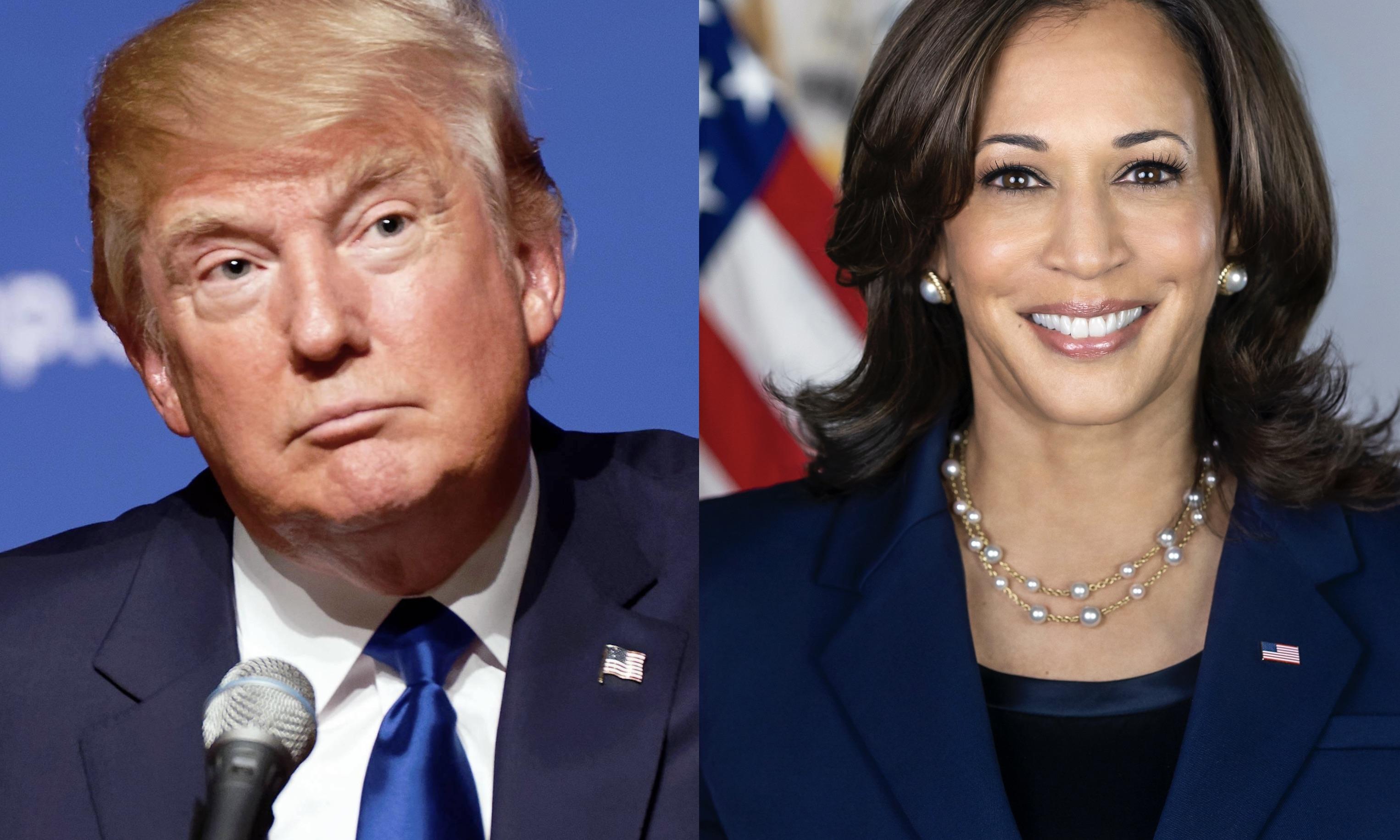As the 2024 U.S. presidential election draws nearer, speculation is growing about the foreign policy approaches of Donald Trump and Kamala Harris, particularly regarding their potential to lead the nation into a global conflict. With rising geopolitical tensions across the world, including threats from Russia, China, and volatile regions in the Middle East, many voters are questioning which candidate might be more likely to escalate these tensions into a full-scale war—commonly referred to as "World War 3."
Donald Trump, known for his "America First" approach during his presidency, positioned himself as a leader focused on reducing U.S. military involvement abroad, including the controversial withdrawal of troops from Afghanistan and scaling back engagements in the Middle East. Trump's emphasis on diplomacy with nations like North Korea and Russia, along with his criticism of NATO, suggests that he is less inclined to pursue aggressive military actions. However, critics point out his unpredictable nature, highlighting instances where his inflammatory rhetoric raised concerns about escalating international disputes.
Kamala Harris, on the other hand, has built her political profile within the Biden administration, which has taken a more conventional approach to international alliances and military strategy. As vice president, Harris has consistently supported policies that reinforce NATO and strengthen military alliances. Critics argue that this commitment to traditional U.S. global leadership could potentially entangle her administration in international conflicts, particularly as tensions with Russia over Ukraine and China over Taiwan remain high.
While both candidates present distinct foreign policy visions, the question of who is more likely to lead the U.S. into a global conflict remains speculative. Harris’s record suggests a more interventionist approach, in line with Democratic leadership’s historic positions on maintaining U.S. military presence globally. Trump’s record, meanwhile, is marked by a preference for withdrawing from conflict zones and focusing on domestic priorities, although his confrontational style in diplomatic settings sometimes raised concerns about potential escalations.
Supporters of Trump argue that his approach to foreign policy during his first term prevented the U.S. from becoming entangled in new wars and kept adversaries in check through strategic diplomacy. His administration, they claim, kept the U.S. out of protracted conflicts that could have risked a global crisis. Harris's critics argue that her commitment to alliances like NATO could push the U.S. toward greater involvement in foreign conflicts, particularly in Europe or Asia, where rising tensions with Russia and China persist.
However, it is important to note that these are speculative scenarios based on each candidate’s past policies and political rhetoric. The future of U.S. foreign policy will depend on a wide array of factors, including the international landscape, economic considerations, and domestic priorities. As of now, ECONOTIMES cannot independently verify claims regarding either candidate’s likelihood of leading the nation into a global conflict.
As the 2024 election season unfolds, foreign policy will remain a critical issue, with voters weighing the risks and benefits of each candidate's approach to global diplomacy and military engagement. Both Trump and Harris face scrutiny over how they will navigate these complex geopolitical challenges, but the potential for either to lead the U.S. into a global war remains a topic of debate.
ECONOTIMES has reached out to representatives for both Donald Trump and Kamala Harris for comment, but no responses have been received as of this publication.



 Iran Supreme Leader Ayatollah Ali Khamenei Killed in Israeli, U.S. Strikes: Reuters
Iran Supreme Leader Ayatollah Ali Khamenei Killed in Israeli, U.S. Strikes: Reuters  ICE Hiring Surge Raises Vetting Concerns Amid Rapid Expansion
ICE Hiring Surge Raises Vetting Concerns Amid Rapid Expansion  Macron Urges Emergency UN Security Council Meeting as US-Israel Strikes on Iran Escalate Middle East Tensions
Macron Urges Emergency UN Security Council Meeting as US-Israel Strikes on Iran Escalate Middle East Tensions  Philippines, U.S., and Japan Conduct Joint Naval Drills in South China Sea to Boost Maritime Security
Philippines, U.S., and Japan Conduct Joint Naval Drills in South China Sea to Boost Maritime Security  Trump Media Weighs Truth Social Spin-Off Amid $6B Fusion Energy Pivot
Trump Media Weighs Truth Social Spin-Off Amid $6B Fusion Energy Pivot  Trump Floats Ted Cruz for Future U.S. Supreme Court Nomination
Trump Floats Ted Cruz for Future U.S. Supreme Court Nomination  Australian PM Calls Alleged Western Australia Terror Plot “Deeply Shocking” After Arrest
Australian PM Calls Alleged Western Australia Terror Plot “Deeply Shocking” After Arrest  NYC Mayor Zohran Mamdani Meets President Trump to Tackle Housing Crisis and ICE Detentions
NYC Mayor Zohran Mamdani Meets President Trump to Tackle Housing Crisis and ICE Detentions  Russia Signals Openness to U.S. Security Guarantees for Ukraine at Geneva Peace Talks
Russia Signals Openness to U.S. Security Guarantees for Ukraine at Geneva Peace Talks  Venezuela Oil Exports to Reach $2 Billion Under U.S.-Led Supply Agreement
Venezuela Oil Exports to Reach $2 Billion Under U.S.-Led Supply Agreement  Trump to Address Nation as U.S. Launches Strikes in Iran, Axios Reports
Trump to Address Nation as U.S. Launches Strikes in Iran, Axios Reports  U.S.-Iran Nuclear Talks Show Progress but No Breakthrough Amid Rising Military Tensions
U.S.-Iran Nuclear Talks Show Progress but No Breakthrough Amid Rising Military Tensions  USITC to Review Impact of Revoking China’s PNTR Status, Potentially Raising Tariffs on Chinese Imports
USITC to Review Impact of Revoking China’s PNTR Status, Potentially Raising Tariffs on Chinese Imports  Trump Orders Federal Agencies to Halt Use of Anthropic AI Technology
Trump Orders Federal Agencies to Halt Use of Anthropic AI Technology  Pakistan-Afghanistan Tensions Escalate as Taliban Offer Talks After Airstrikes
Pakistan-Afghanistan Tensions Escalate as Taliban Offer Talks After Airstrikes  U.S.-Israel Strike on Iran Escalates Middle East Conflict, Trump Claims Khamenei Killed
U.S.-Israel Strike on Iran Escalates Middle East Conflict, Trump Claims Khamenei Killed  U.S. Plans 4,500 Monthly Refugee Admissions for White South Africans Amid Policy Debate
U.S. Plans 4,500 Monthly Refugee Admissions for White South Africans Amid Policy Debate 































